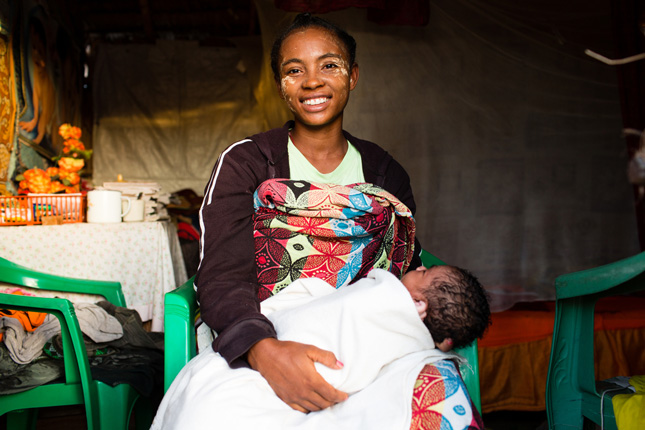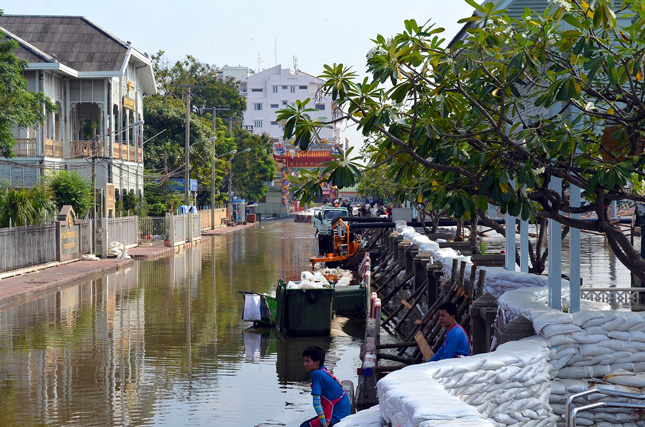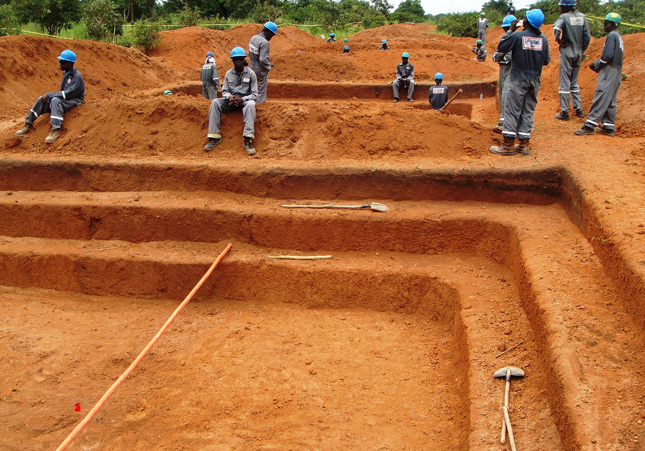-
Eric Larson and Sarthak Gupta, Climate Central
Shift from Coal to Gas Means Power Plants Are Using Less Water [Infographic]
›As the U.S. has undergone a rapid and massive shift to natural gas from coal, one benefit has gone almost entirely overlooked: the amount of water needed to cool the nation’s power plants has dropped substantially.
-
Parson Rambinizandry and Marie Williamson, Blue Ventures
Conservation Organization Helps Women Bring Health Care to Rural Madagascar
›
Two months ago we sat down with some of our community health workers to brainstorm ideas for International Women’s Day. What would engage women, what could bring about positive change in their community? Something different to the normal celebrations, perhaps a petition for a midwife? This seemed like a great idea on paper, but would it create false hope in a village where the public health center has been closed for years?
-
Lukas Rüttinger, Adelphi
Thailand and Sri Lanka Show How Disasters Can be Catalysts of Fragility or Opportunities for Peace
›June 26, 2015 // By Wilson Center Staff
In 2011 Thailand was hit by unprecedented monsoon rains far above the average rainfall of the previous 30 years. Two million people across 26 provinces were affected. During the crisis, hundreds of civilians took it to the streets to protest discrimination by the Flood Response Operation Center and the unfair distribution of water, electricity supply, shelter, and food. Civilians were so angry that they broke a sandbag wall in Bangkok which was protecting a wealthy district from water surges. Public unrest and discontent with the government continued until a military coup in 2013.
-
Celeste Hicks and Laura Seay, Monkey Cage
Governance, Gender, and No Guarantees in Africa’s Oil-Rich States
›June 23, 2015 // By Wilson Center Staff
The discovery of oil in Chad in 1969 did not yield many immediate benefits for a population that would soon be wracked by civil war, but hopes were high by the late 1990s. Chad had largely stabilized, and a new, World Bank-backed project to build a pipeline through Cameroon to the Atlantic Ocean coast was touted as a model for socially and environmentally responsible oil exploitation in developing countries.
-
Codi Yeager-Kozacek, Circle of Blue
Middle East Conflicts Jeopardize Water for Millions
›June 15, 2015 // By Wilson Center StaffMillions of people across the Middle East face drought, scarce drinking water supplies, and poor sanitation due to civil wars and conflict. Meanwhile, resource constraints and foreign military interventions risk more severe humanitarian disasters.
-
Katie Millar, Maternal Health Task Force
Global Experts Highlight Importance of Midwives to Maternal Health
›
May 5 was the International Day of the Midwife, an opportunity for the global community to come together to recognize the incredible impact midwives have on maternal and newborn health and decreasing mortality. Want to know more about what global leaders are doing to strengthen midwifery?
-
New G7 Report Highlights Climate Change and Fragility as a Foreign Policy Priority
›
At the close of a meeting of G7 foreign ministers in Lübeck today, ministers announced a stronger collective commitment to tackling climate-related risks in states experiencing situations of fragility.
-
Jack A. Goldstone, CNN
Yemen’s Collapse a Result of Systematic Failures, U.S. Neglect
›April 2, 2015 // By Wilson Center Staff
It shouldn’t come as a surprise that Yemen has collapsed – again. A country that has split and been pulled together before, has the youngest and fastest growing population in the region, is running low on oil and water, and possesses a “personalist” government rather than stable institutions, was on the top of every expert’s list as the fragile state most likely to fail next.
Showing posts by Wilson Center Staff.









